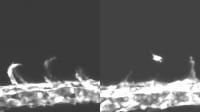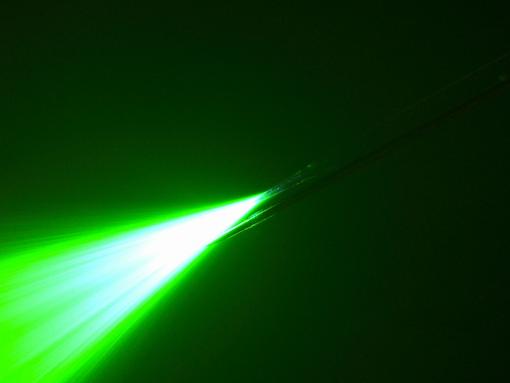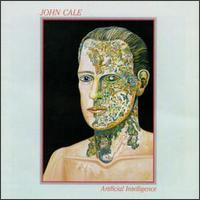
Inhibiting the formation of new blood vessels is a common strategy for treating a range of conditions such as cancer, inflammatory diseases, and age-related macular degeneration.
Unfortunately, drug inefficiency, resistance, and relapse have limited the success of this approach. Now new research publishing online December 12 in the Cell Press journal Cell Metabolism reveals that targeting the metabolism of blood vessels may be a way around these shortcomings.
“Our findings reveal a new strategy to block blood vessel growth in various pathological conditions by depriving them of energy and building blocks necessary for growth,” says senior author Dr. Peter Carmeliet of the University of Leuven and the Vesalius Research Center, VIB in Belgium.
While current strategies to thwart pathological blood vessel formation focus primarily on inhibiting vascular endothelial growth factor (VEGF), this latest research centers around blocking glycolysis, the process that endothelial cells rely on for generating most of the energy they need to multiply and migrate. Endothelial cells form the inner lining of a blood vessel and provide a barrier between the vessel wall and blood.
Dr. Carmeliet and his team previously found that the glycolytic activator PFKFB3 promotes blood vessel formation by stimulating glycolysis in endothelial cells. In their new work, the investigators discovered that blocking PFKFB3 with a small molecule called 3PO reduced blood vessel sprouting by inhibiting the proliferation and movement of endothelial cells.
3PO also amplified the effects of VEGF blockade. And although 3PO reduced glycolysis only partially and transiently, this sufficed to decrease pathological blood vessel formation in both ocular and inflammatory laboratory models. “As many cells in the body need glycolysis for growth and survival, the partial and transient reduction of glycolysis might limit the side effects and toxicity of this therapy in the clinic,” Dr. Carmeliet notes.
The findings could lead to new treatments that block the excessive blood vessel growth that supports cancer spread, causes blindness, and fuels inflammatory diseases such as psoriasis and inflammatory bowel disease.
The Latest on: Pathological blood vessel formation
[google_news title=”” keyword=”pathological blood vessel formation” num_posts=”10″ blurb_length=”0″ show_thumb=”left”]
via Google News
The Latest on: Pathological blood vessel formation
- Protein marker unveiled for identifying blood vessel repair cellson May 7, 2024 at 10:15 pm
Researchers have discovered a protein marker to help identify cells able to repopulate in patients with damaged blood vessels.
- Anger can harm your blood vessel function, study showson May 1, 2024 at 2:00 am
Well, that isn’t too far off, according to new research. Feelings of anger adversely affect blood vessel health, according to a study published Wednesday in the Journal of the American Heart ...
- Angry? Your blood vessels pay the price, new study demonstrateson April 30, 2024 at 5:00 pm
Even brief periods of anger caused by triggering memories can negatively impact our blood vessels' ability to relax. That's the finding of a new study that could have implications on how we look ...
- Brief anger may impair blood vessel functionon April 30, 2024 at 5:00 pm
When adults became angry after remembering past experiences, the function of cells lining the blood vessels was negatively impaired, which may restrict blood flow, according to a new study.
- Cell biology: Molecular code stimulates pioneer cells to build blood vessels in the bodyon April 16, 2024 at 5:01 pm
Molecular Cocktail Encodes the Time and Place of Blood Vessel Formation Dr. Laetitia Preau, first author of the paper, explains: “Single cell sequencing combines detailed RNA sequencing of ...
- BLOOD VESSELSon April 9, 2024 at 3:57 pm
Stroke occurs when blood vessels supplying the brain either rupture or a clot is formed in them. Clot formation is responsible for 80% of the cases. Kaposi sarcoma (KS) is a cancer that develops ...
- ULB research unveils unprecedented mechanism of brain blood vessel formationon April 2, 2024 at 4:59 pm
Contrary to the generally accepted idea that blood vessels form in a similar way throughout the body, Giel Schevenels and colleagues have discovered that those irrigating the brain obey different ...
- Molecular regulation of angiogenesis and lymphangiogenesison April 18, 2023 at 11:41 pm
Similar remodelling processes are thought to be important for the growth of blood vessels later in development as well as for physiological and pathological ... and the formation of arteriovenous ...
- What are blood vessels?on May 8, 2022 at 9:12 am
Inside you, there is an amazing network of blood vessels, the tubes that carry blood all around your body. Every part of the body needs oxygen, food and water. The blood vessels are a bit like ...
- VEGF and ephrin-B2: a bloody duoon July 1, 2010 at 5:00 am
receptors—thereby regulating VEGF-induced angiogenesis in normal and pathological conditions. Growth and development of normal tissues and tumors require the formation of new blood vessels, a ...
via Bing News










